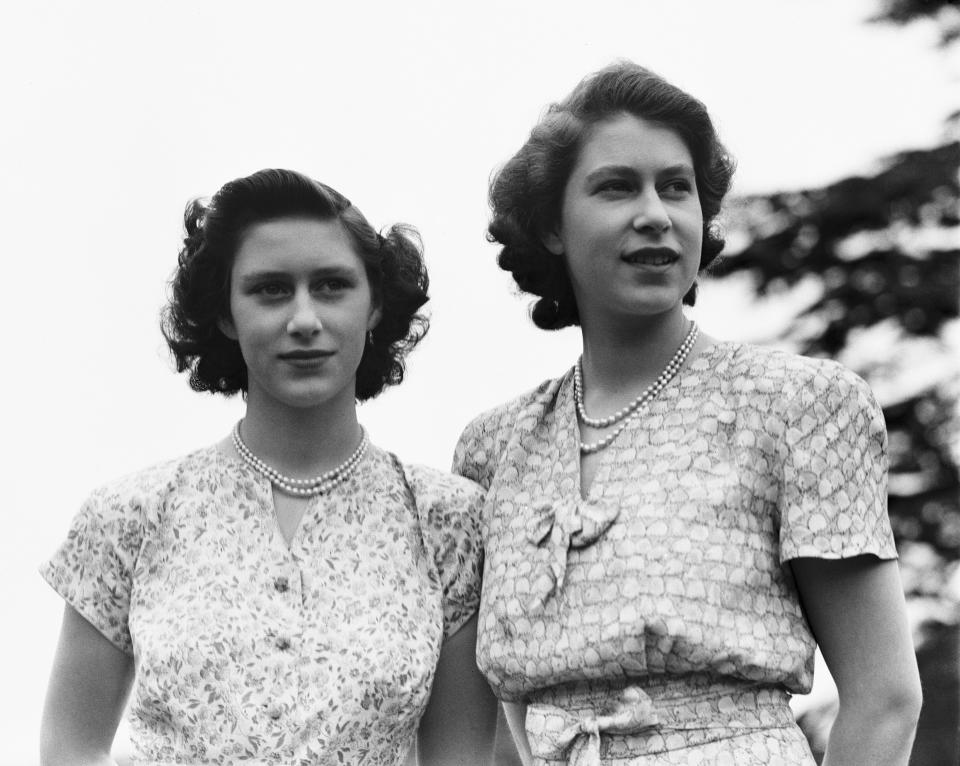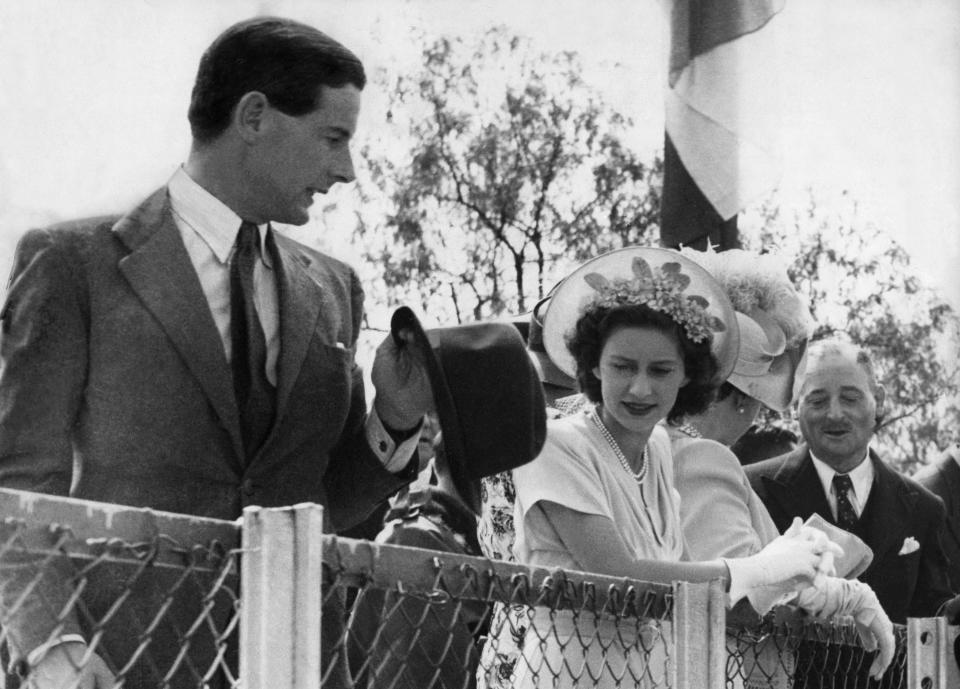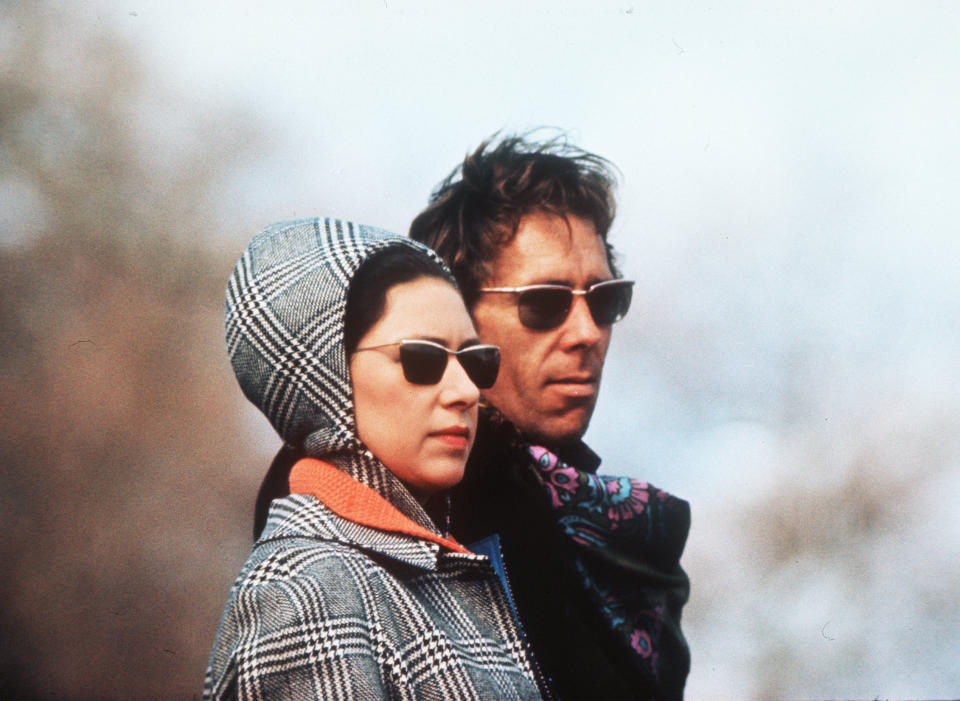Inside the scandalous life of the Queen's sister Princess Margaret

The year is 1992 and the royal family is in tatters.
Famously branded an annus horribilis, a Latin phrase, meaning "horrible year", by the Queen, the period was one marked by near-constant tabloid scandal—with Her Majesty’s daughters-in-law typically at its centre.
From Sarah Ferguson’s infamous toe-sucking scandal to Diana and Charles’ volatile split, those faced with handling the monarchy’s future were instead facilitating its destruction.
The royals, often seen as a pillar of stability in an ever-changing Britain, were appearing increasingly alien to the public and privileged alike.
But at the real helm of this disapproval was Princess Margaret.

Margaret’s royal rouse
In a letter penned to Sarah, Duchess of York during the tumultuous period, the Queen’s younger sister scathed her niece-in-law’s very public scandals.
"You have done more to bring shame on the family than could ever have been imagined,” she wrote.
“Not once have you hung your head in embarrassment even for a minute after those disgraceful photographs. Clearly you have never considered the damage you are causing us all.
“How dare you discredit us like this.”
But despite her disgust, Margaret had herself already tarnished the royal image, acting as The Firm’s original rebel as part of her unprecedented colourful and glamorous life in the spotlight.
Upon returning from her Caribbean island hideaway, Mustique in 1976, the married princess was in disgrace after being exposed by the press romping an aristocratic lover 17 years her junior.
Two years later—after a long and mutually unfaithful marriage to Lord Snowdon, Antony Armstrong-Jones—she became the first senior royal to be granted a divorce.
She was also the first to face real and unchallenged press criticism in what was a life marred by both private and very public unfulfillment.
This theme of disappointment began on a balmy summer’s night in August 1930 at Glamis Castle—the Queen Mother’s Scottish family’s home—as the royals awaited the birth of the King George V’s second grandchild.

She’s no future king
The first had been a girl, Elizabeth, and with no other royal babies on the horizon, there were high hopes that this would be a prized prince who would one day take to the throne.
Alas, Margaret was instead her parents’ consolation prize and although raised in a tight-knit and loving immediate family, the sentiment did not extend to wider royal circles.
The Home Secretary, who as per protocol attended the birth, was tasked with relaying the depressing news to an anticipated public.
“Margaret was born into disappointment,” a BBC broadcast announced at the time.
“The nation had prayed for a prince but instead her sister has become heiress presumptive and her sister next in succession.”
More than half a century later during a radio interview with BBC’s Desert Island Discs, Margaret echoed her the downcast sentiment of her arrival in reference to how the since decades had played out.
When asked about her well-documented affinity to music, comedy and dancing, she instead chose to focus on her apparent shortcomings.
“No, I don’t think so I wasn’t good at any of them. You’re kind enough to say that I’m a good mimic but I can’t actually mimic people very well there are other members of my family who are better at that,” she claimed.

“And I’m not a very good musician, I can strum on the piano but only for other people to sing to.”
But despite her dismissive demeanour, things weren’t always so downcast for the daughter of King George VI and the Queen Mother.
Princesses’ ivory tower
Unlike most royal children of her era, Margaret’s childhood was a near-idyllic one with her immediate family famously describing themselves as ‘us four’.
This affection was particularly present in the princess’ devoted father who was known for calling “Elizabeth his pride, and Margaret his joy”.
Raised between her parents’, then the Duke and Duchess of York’s, London townhouse and Royal Lodge at Windsor, the foursome were often publicised as the royals’ ideal family.
Margaret’s father or sister were never expected to reign so the Queen Mother’s aim for her daughters was to simply be “nothing more than nicely behaved young ladies".
However, fate would intervene in 1936 when the princesses’ uncle, King Edward VII abdicated, a decision which would bring their father to the throne and ultimately to a premature death just 16 years later.
"He was such a wonderful person, the very heart and centre of our happy family,” she wrote at the time of his passing.

Such a profound loss at the age of just 21 would leave a permanent imprint on Margaret’s psyche and officially confirm her place in Elizabeth’s shadow, as the Queen immediately took to the throne.
Eager to find comfort in her father’s absence, the young princess turned to his former equerry and advisor Peter Townshend for support, a move which would later transpire into a political crisis.
Royal romance
The two soon fell in love but scandal quickly followed due to the Group Captain’s age, 16 years her senior, and more prevalently the fact he was divorced and a father of two young sons.
As the union would go against the Church of England’s ban of the divorced remarrying, Margaret’s hands were tied when Peter eventually proposed in 1953.
Despite this, the Queen initially attempted to craft a compromise for her sister, suggesting the relationship could proceed if Margaret forwent her title and the two married in Scotland, where the church permits the re-marriage of divorced people.
But the British government refused to approve the marriage, and newspapers reported it was "unthinkable" and "would fly in the face of royal and Christian tradition".
Cornered by her status, Margaret felt forced to abandon the only romance she’d ever known and after two years of speculation informed the public her much-wanted marriage would not go ahead.
“I would like it to be known that I have decided not to marry Group Captain Peter Townsend,” she said in a statement released in October 1955.
“I have been aware that, subject to my renouncing my rights of succession, it might have been possible for me to contract a civil marriage.

“But mindful of the Church's teachings that Christian marriage is indissoluble, and conscious of my duty to the Commonwealth, I have resolved to put these considerations before others.”
Five years later, the princess would eventually find love again, this time to flamboyant photographer, Antony Armstrong-Jones who was a centre piece in London’s high society circles.
After a short romance, his marriage proposal was accepted by Margaret, one day after she found out Peter was engaged to a young woman who bore her striking resemblance.
An extravagant royal wedding soon followed as did two children David, Viscount Linley, and Lady Sarah, but the couple’s flame dimmed just as their desire for other romances grew stronger.
Among the princess’ rumoured lovers were her daughter's winemaker godfather Anthony Barton, Robin Douglas-Home, the nephew of a British Prime Minister and Caribbean entertainer Leslie Hutchinson.
More far-fetched of her speculated extramarital partners include Rolling Stones frontman Mick Jagger and Australian test cricketer Keith Miller—but both remain unproven.

One month after her ill-fated Mustique getaway with Roddy Llewellyn, Margaret and Antony publicly acknowledged that their marriage had irretrievably broken down.
The divorce, the first for a senior royal in centuries, was finalised two years later in 1978.
Margaret’s later life, which is set to be chronicled in The Crown’s soon-to-be released season three, was largely lived in relative seclusion.
Her morning routine recently went viral for its decadent demands which included breakfast in bed, an hour in the bath, a four-course lunch and several vodka pick-me-ups throughout the day.
“As one would imagine of a Princess, she never wore any of her clothes more than once without having them cleaned,” it detailed.

Margaret’s health woes began in 1980 with the removal of a benign skin lesion, five years later she had part of her left lung taken out following decades of smoking.
Multiple strokes in the late 1990s and early later left her bedridden, partially and eventually confined to a wheelchair.
Six weeks before the Queen Mother’s death, Margaret passed away from the effects of another stroke at the age of 71.
Her funeral took place the next week on 15 February 2002, exactly 50 years since her beloved father’s own burial.
Sarah, Duchess of York did not attend.
Got a story tip or just want to get in touch? Email us at lifestyle.tips@verizonmedia.com
Want more lifestyle and celebrity news? Follow Yahoo Lifestyle on Facebook, Twitter and Instagram.
Or sign up to our daily newsletter here.

 Yahoo Lifestyle
Yahoo Lifestyle 

